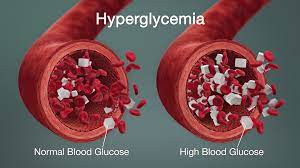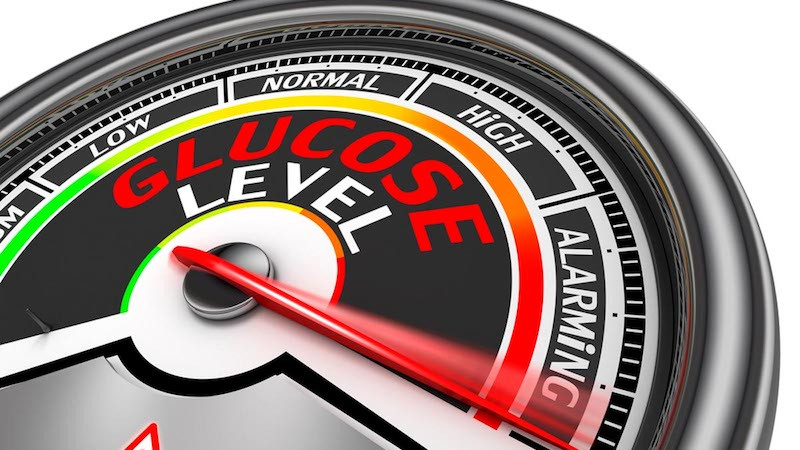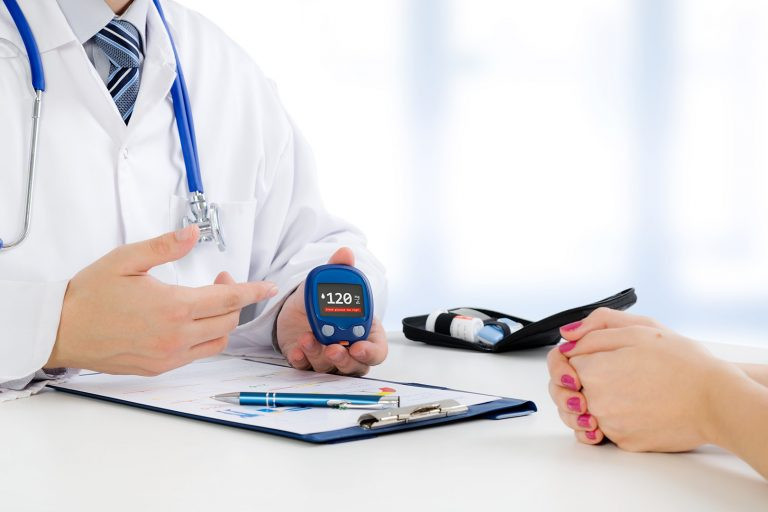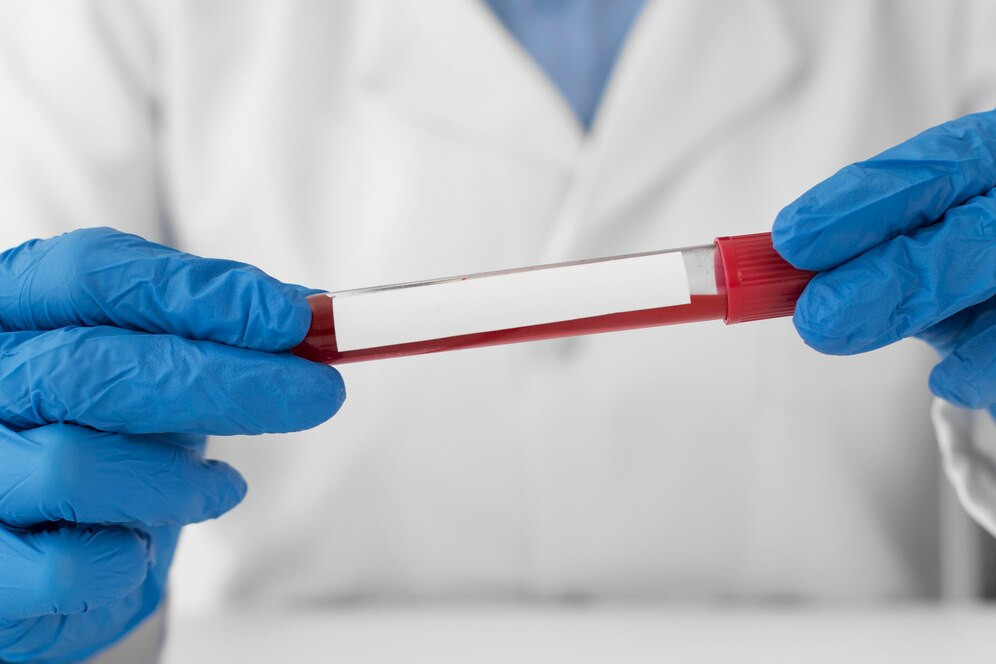Definition
Hyperglycemia is a condition characterized by elevated amounts of glucose in the blood. Hyperglycemia is a condition characterized by elevated amounts of glucose in the bloodstream. The condition develops when there is a reduction in the synthesis of insulin, which is a hormone responsible for facilitating the absorption of glucose into the cells of the body, or when the body is unable to efficiently use insulin. This condition primarily manifests in individuals with diabetes and may progress into severe complications if left untreated.
Causes
During digestion, the body will enzymatically decompose carbohydrates found in meals, such as rice, bread, and noodles, into simple sugars. Sugar, often known as glucose, is a primary source of energy for the body.
Upon consumption, glucose is absorbed and promptly released into the bloodstream, although it cannot enter the body's cells without the support of insulin. The pancreas produces the insulin hormone.
The pancreas secretes insulin in response to elevated blood glucose levels. This facilitates the entry of glucose into the cells, enabling them to obtain the necessary energy for normal functioning.
The liver and muscles will store the extra glucose. This mechanism will decrease glucose concentration in the bloodstream and prevent it from reaching excessively elevated levels.
- Type 1 diabetes is a medical disorder characterized by a lack or complete absence of the hormone insulin in the body
- Type 2 diabetes refers to a condition in which the body exhibits reduced sensitivity or resistance to the hormone insulin
- Pancreatic organ damage
- Excessive consumption of food
- Stress
- Lack of physical activity
Risk Factor
Several factors can cause hyperglycemia, including:
- Type 2 diabetes in the family
- Overweight
- Hypertension or high cholesterol
- Historical background of gestational diabetes
- PCOS
Stress or diseases can cause hyperglycemia. This is because of the secretion of hormones by the body in response to disease or stress, which may eventually elevate blood sugar levels. During periods of disease or stress, it may be necessary to add extra antidiabetes medication to maintain stable blood sugar levels.
Symptoms
The symptoms of hyperglycemia typically manifest gradually for several days or weeks and are only evident when blood glucose levels are significantly elevated. Nevertheless, certain individuals with longstanding type 2 diabetes may remain asymptomatic despite elevated blood glucose levels.
Initial symptoms consist of:
- Polyuria
- Polidipsi
- Headache
- Vision impairment
- Fatigue
Untreated hyperglycemia in individuals with type 1 diabetes leads to the accumulation of hazardous ketones in both the bloodstream and urine. The medical term for this disease is ketoacidosis.
- Fruit-scented breath
- Xerostomia
- Abdominal pain
- Nausea and vomiting
- Dyspnea and tachycardia
- Confusion
- Unconsciousness
Diagnosis
Hyperglycemia can be identified by completing blood tests, including fasting blood sugar, random blood sugar, and HbA1c. It is possible to check your blood sugar at home with a glucometer from a drugstore or medical supply store.
- Fasting Blood Glucose Levels
A fasting blood sugar examination is conducted to evaluate the glucose level in the blood after abstaining from consuming high-calorie foods or drinks for a minimum of 8 hours.
The typical range for fasting blood sugar is 70–99 mg/dL. A blood glucose level ranging from 100 to 125 mg/dL indicates prediabetes, whereas a level of ≥ 126 mg/dL confirms the presence of diabetes.
- Random Blood Glucose Levels
Random Blood Glucose Examination (RBG) is a diagnostic test that measures blood sugar levels at any moment. The term 'at any time' describes this examination because it does not have specific time restrictions like the Fasting Blood Sugar (GDP) examination, which necessitates the patient to abstain from food for 8–10 hours before the test.
A blood sugar level between 70 and 139 mg/dL is normal. Prediabetes is diagnosed when blood glucose levels range from 139 to 199 mg/dL. If the outcome rises above 200 mg/dL, it indicates the presence of hyperglycemia.
- HbA1c analysis
HbA1c is a type of hemoglobin protein that is present in the bloodstream and has the ability to attach itself to sugar molecules in the blood. The interaction between sugar and hemoglobin can develop gradually, typically taking place over 2–3 months, depending on the age of the red blood cells.
The HbA1c test determines the mean glucose levels attached to hemoglobin in the bloodstream over 3 months.
The standard range for HbA1c is below 5.7%. If the blood glucose level falls within the 5.7–6.4% range, it is prediabetes. However, if the level is equal to or above 6.5%, it indicates the presence of diabetes.
Management
The primary objective in managing hyperglycemia is to relieve symptoms associated with high blood sugar levels and lower the risk of complications. If hyperglycemia develops as a result of diabetes, it can only be managed and not completely cured.
To regulate blood glucose levels in individuals with type 1 diabetes, the doctor will prescribe insulin therapy. Insulin is administered periodically under the prescribed dosage. In the meantime, patients with type 2 diabetes will receive antidiabetes medication as well as advice from their doctor about changing their diet and lifestyle.
A screening test is necessary for patients with hyperglycemia to identify potential complications such as retinopathy, nephropathy, and cardiovascular disease.
Patients with type 2 diabetes who develop hyperglycemia will be directed to an endocrinologist for more effective management of their condition. The doctor will administer medicine to regulate blood glucose levels and, if needed, insulin injections.
Complications
If your blood sugar levels temporarily increase, it's not an indicator of caution. Nonetheless, extremely high or prolonged hyperglycemia levels might lead to significant complications.
Among the potential complications are the following:
- Vision impairment (retinopathy)
- Acute renal failure (nephropathy)
- Neuropathy, often known as nerve disease
- Cardiovascular disease
- Cerebrovascular disorders
- Peripheral vascular disorders
You can also read articles about Retinopathy here !
Prevention
To maintain normal blood sugar levels, practice the following:
- Exercise regularly
- Limit carbohydrates and sweets for a healthy diet
- Maintain ideal body weight
- Stop smoking
- Avoid alcohol consumption
- Regularly check blood glucose
- Avoid stress
- Follow your doctor's advice when you are sick
- Do not skip or modify diabetes medication dosages without medical approval
- Follow your doctor's orders about the use of diabetes medication
When to see a doctor?
Consult your doctor if:
- Your blood sugar remains high, or you still have symptoms after regulating it
- Hyperglycemia symptoms without diabetes diagnosis
- You can eat and drink despite having persistent diarrhea or vomiting and hyperglycemia
- Fever and hyperglycemia persist for more than 24 hours
Immediately contact a medical professional if you suspect you have hyperglycemia and:
- Your symptoms include nausea, vomiting, or diarrhea, and you are unable to consume food or drink
- Your blood glucose level continues to increase above 240 mg/dL, and you manifest ketoacidosis symptoms
Want to know more information about other diseases? Click here!
- dr Nadia Opmalina
(2022) NHS choices. NHS. Available at: https://www.nhs.uk/conditions/high-blood-sugar-hyperglycaemia/ (Accessed: January 27, 2023).
Hyperglycemia in diabetes (2022) Mayo Clinic. Mayo Foundation for Medical Education and Research. Available at: https://www.mayoclinic.org/diseases-conditions/hyperglycemia/symptoms-causes/syc-20373631 (Accessed: January 27, 2023).
Hyperglycemia: Causes, symptoms, treatments & prevention (2020) Cleveland Clinic. Available at: https://my.clevelandclinic.org/health/diseases/9815-hyperglycemia-high-blood-sugar (Accessed: January 27, 2023)
Mouri MI, Badireddy M. Hyperglycemia. [Updated 2022, Apr 28]. In: StatPearls [Internet]. Treasure Island (FL): StatPearls Publishing; 2022 Jan-. Available from: https://www.ncbi.nlm.nih.gov/books/NBK430900/












